Vaping Laws in California – Is it Legal to Vape in California?
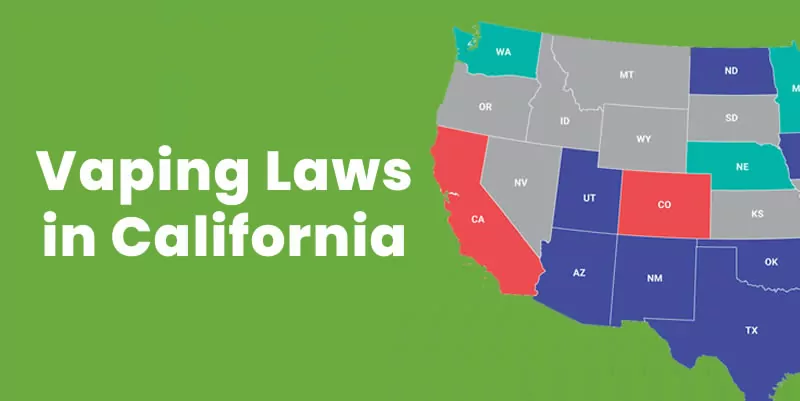
In recent years, vaping has become a popular alternative to traditional smoking. But with this new trend comes a need for regulation. In this article, we will explore the various vaping laws in California and answer the question, “Is it legal to vape in California?” By delving into federal and state laws, as well as local regulations, we will provide a comprehensive overview of the current vaping landscape in the Golden State.
Federal Vaping Laws
Before examining California-specific laws, it is important to understand the federal regulations governing vaping.
Family Smoking Prevention and Tobacco Control Act
This act, passed in 2009, grants the Food and Drug Administration (FDA) authority to regulate tobacco products, including electronic cigarettes. It establishes certain standards, such as requiring warning labels and prohibiting the sale of tobacco products to minors.
Deeming Rule
In 2016, the FDA extended its regulatory authority to include e-cigarettes, vape pens, and other electronic nicotine delivery systems (ENDS). This rule classified ENDS as tobacco products, subjecting them to the same regulations and restrictions as traditional tobacco products.
California Vaping Laws
Now that we have covered federal vaping regulations, let’s move on to the specific laws that apply to California.
Age Restrictions
In California, it is illegal to sell or provide vaping products to anyone under the age of 21. This law applies to both online and in-person sales and is in line with the federal Tobacco 21 legislation passed in 2019.
Retailer Licensing
California requires retailers who sell tobacco products, including vaping devices and e-liquids, to obtain a state license. This license must be renewed annually and displayed prominently in the retail establishment.
Vaping in Public Places
In California, vaping is subject to the same restrictions as smoking. This means that it is prohibited in enclosed public spaces, within 20 feet of entrances and exits, and in certain outdoor areas, such as dining patios and sports facilities.
Workplace Vaping Regulations
Employers in California must maintain a smoke-free workplace, which includes a ban on vaping. This means that employees are not allowed to use e-cigarettes or any other vaping devices while on the job or in designated work areas.
School Campus Regulations
Vaping is strictly prohibited on all K-12 school campuses in California. This ban extends to both students and staff, as well as visitors and volunteers.
Vaping and Driving
While there is no specific law addressing vaping while driving, doing so can be considered a distraction and may result in a citation for distracted driving. It is essential to stay focused on the road and avoid any activities that may divert your attention from driving safely.
Local Vaping Laws
In addition to statewide regulations, some local jurisdictions in California have enacted their own vaping laws.
Flavor Bans
Several cities and counties in California have implemented bans on the sale of flavored e-cigarette products. These bans aim to reduce the appeal of vaping to young people, who are often drawn to the enticing flavors.
Additional Local Restrictions
Some localities have gone even further by implementing stricter regulations, such as banning the sale of e-cigarettes altogether or restricting where vaping products can be sold. It is crucial to familiarize yourself with the local laws in your area, as they may differ from statewide regulations.
Penalties for Violating Vaping Laws
Violating vaping laws in California can result in various penalties, ranging from fines to the suspension or revocation of a retailer’s license. Individuals who provide vaping products to minors may also face fines and potential criminal charges.
Impact of Vaping Regulations
The implementation of vaping regulations in California has had a significant impact on both public health and the vaping industry.
Public Health
Regulating vaping aims to reduce the potential risks associated with e-cigarette use, such as nicotine addiction and exposure to harmful chemicals. By limiting access to minors and restricting vaping in public spaces, California’s vaping laws strive to protect public health and minimize the negative impact of vaping on non-users.
Vaping Industry
The vaping industry has faced challenges adapting to the evolving regulations. Some businesses have closed due to the restrictions on flavored products or the difficulty in obtaining licenses. However, many in the industry argue that regulation is necessary to ensure the safety and quality of vaping products and maintain public trust.
Conclusion
In conclusion, while vaping is legal in California for individuals aged 21 and over, there are numerous restrictions and regulations in place to control its use. These laws aim to protect public health, limit access to minors, and promote responsible vaping practices. As a vaper in California, it is essential to understand and comply with these regulations to avoid penalties and contribute to a safer vaping environment.
FAQs
Is it legal to vape in California if I’m under 21?
No, it is illegal to sell or provide vaping products to anyone under the age of 21 in California.
Can I vape in restaurants or bars in California?
Vaping is subject to the same restrictions as smoking in California, which means it is generally prohibited in enclosed public spaces, including restaurants and bars.
Are there any restrictions on buying e-cigarette products online in California?
Yes, the same age restrictions apply to online sales, and retailers must verify the age of the purchaser before completing the transaction.
Can I vape in my car while driving in California?
While there is no specific law against vaping while driving, it can be considered a distraction and may result in a citation for distracted driving.
How do local vaping laws in California differ from statewide regulations?
Local vaping laws may include additional restrictions, such as flavor bans or stricter regulations on where vaping products can be sold. It is important to familiarize yourself with the local laws in your area.
- Guide to Quitting Vaping: Proven Strategies for Success - July 23, 2024
- TRPR and TPD UK Regulations for Vaping Devices and E-Liquids - July 23, 2024
- Guide to the New Tobacco and Vape Regulations in Romania - July 23, 2024
Related posts:
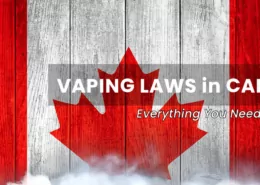 Vaping Laws in Canada – Everything You Need to Know
Vaping Laws in Canada – Everything You Need to Know
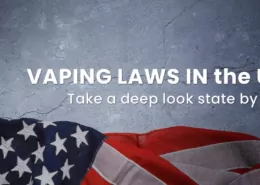 Vaping Laws in the U.S. by State
Vaping Laws in the U.S. by State
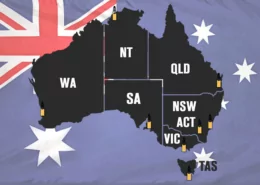 Australia Vaping Laws – Is Vaping Illegal in Australia
Australia Vaping Laws – Is Vaping Illegal in Australia
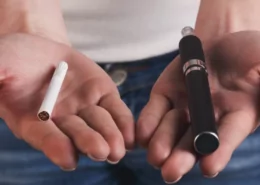 Vaping, Smoking and the Fight for a Smoke-Free America: Where We Stand and Where We Go
Vaping, Smoking and the Fight for a Smoke-Free America: Where We Stand and Where We Go
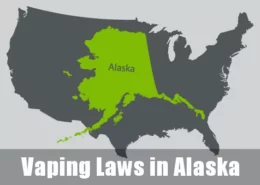 Vaping Laws in Alaska – Is it Legal to Vape in Alaska?
Vaping Laws in Alaska – Is it Legal to Vape in Alaska?
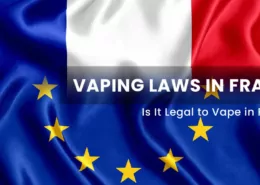 Vaping Laws in France – Is it Legal to Vape in France?
Vaping Laws in France – Is it Legal to Vape in France?


